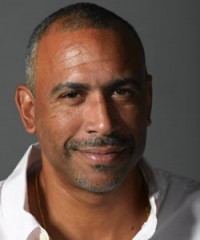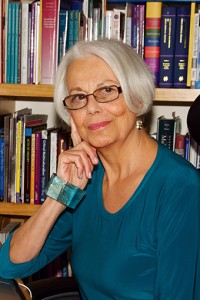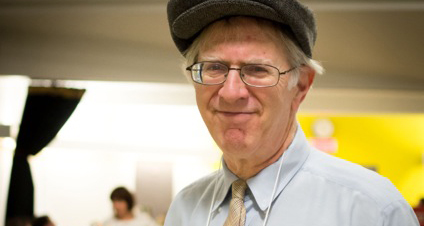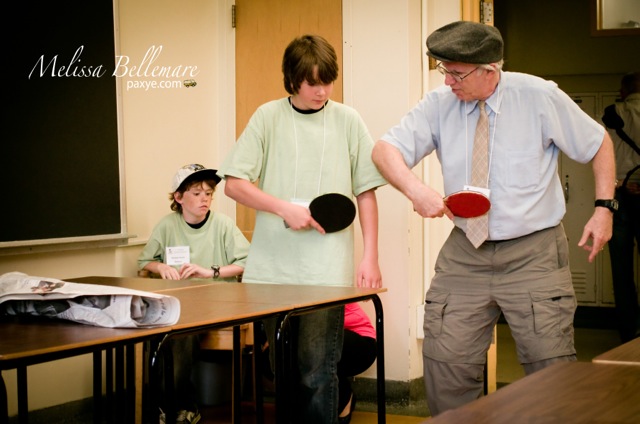
The following interview is shared with you by both Riane Eisler and Isaac Graves. To learn about this interview series and reproduction, citation, and copyright information, please click here. To find out more about Riane Eisler and her work, visit www.partnershipway.org; www.caringeconomy.org; www.saiv.org; and rianeeisler.com.
Riane Eisler
 Isaac Graves: What does community mean to you?
Isaac Graves: What does community mean to you?
Riane Eisler: I always think of it from the perspective of the difference between what would be a community that orients to the domination system or to the partnership system. Because you can have community that basically is very reliant on fear and force or the threat of force, very male dominated, oriented towards in-group versus out-group, so that there is a win-lose mentality, which is part of the domination system because there is so much repressed anger and fear that you have to displace it to the “other,” so to speak.
We certainly see those communities and actually they function quite effectively in the sense that they are close knit. People are socialized to accept them, and they do get a sense of belonging out of them. So I can't just define community as a sense of belonging, which is a very common definition. Because this would be very different in a partnership context where basically the glue that holds the community together isn't so much fear, be it of a punitive deity, Allah, Yahweh, or a Hindu god who’s going to bring you back as a cockroach if you're not good or if you don't obey, or of the rulers. In a partnership context community is defined in terms of mutual respect, mutual accountability, mutual benefit – and not only for the in-group but for others as well.
It's a very different kind of community, and that to me is the challenge: how can we build partnership communities, especially in a world where the norms are still so dominator-oriented in the mainstream, less in some places, more in others?
Like the young woman who took umbrage that in my speech at the conference I spoke of Swedes and Norwegians as more partnership-oriented because of this one crazy guy who shot all these young people. Actually, these nations, which are more partnership oriented, have been so hospitable to immigrants, more than other nations. So they view community in a more inclusive way, with empathy not only for your peers or your class.
These are very basic issues for me. I don't think that community can be really understood without making that distinction. My community, to be personal, really is not a local community. It's a community of people like you, like me, who are committed to moving to a partnership system, be it through education, be it through economic change, be it through changes in religious stories, changes in the media, changes in family or other relationships.
I feel very blessed to have our community because what it reminds me of always is that even in times of massive regression, like we can see through the last decades, there are people working to create a different kind of community, a community that's dedicated to building a better world.
IG: How does community play out in your life?
RE: It's on many levels. First is a community of my dear ones, my husband, my children, my grandchildren. That's a very important community to me. It's a love that we share, the challenges we share. We're bonded.
Then there is the community in which I live, and I'm very lucky to live in a beautiful place, Carmel, small. When I first moved to Carmel I was on the board of the YWCA. I worked for the women's shelter. I worked with the ACLU, but then I got disillusioned with the ACLU because much of their financing has been from Hustler, from Playboy — so they have never taken a sensible approach towards violent pornography for example, of a balancing of rights, which law is always about, of balancing protecting women and children and free speech. So I quit.
I still become involved in community affairs. When a close friend who was an artist died, we helped to organize an auction of art to support the family. I have also spoken at benefits, such as one recently for homeless women, and donated money.
These are all community activities. I'm certainly active in the larger community in trying to change the direction of our national policies. I’m also involved in changing international policies. I spoke at the United Nations General Assembly recently in a session on harmony with nature. I was the only one to talk about women and children and about poverty and hunger. It was on the rights of Mother Earth, but the rights of Mother Earth depend on what people do. It isn't some abstraction. So, for me, communities are on various levels. I think of myself as a member of the larger human and ecological community.
IG: What do you find most meaningful about community?
RE: The love that we share, the respect, the mutual caring, the attempt to, in my community – I'm now talking about another community which is the Center for Partnership Studies, the people on our Board, our staff, our donors and the people that we serve — to create the conditions that will support partnership rather than domination. I love the webinars CPS offers, the Caring Economy Leadership & Learning programs, and so on. It's very meaningful to me that I'm able to teach in them. That is very rewarding.
When people tonight came up to me, so many of them, saying, “Your work has transformed my life.”Or one guy who brought me my dinner said, "Oh my gosh, your work just completely transformed my life." Sure there's some ego here, but there's also that great pleasure of knowing that you have given something to people. So, it's very nurturing to me and my work is nurturing to others.
IG: What's missing in community?
RE: Well, what's missing is that I wish that we had been more successful in building a partnership community at all levels. I know, as I was saying in my talk, that as you look at modern history through the lens of the partnership/domination continuum, we can see an upward movement toward partnership, but it’s a spiral movement with dips. And the dips are getting more and more dangerous because of high technology. Their effect on nature, through nuclear weapons, biological weapons, the rise of terrorism, all these are signs that the mix of high technology and an ethos of domination and conquest is suicidal.
So, that's why I also feel that there is something about community that we have to be careful about: that's about not feeling that we have to conform to gain acceptance and love. Even in the progressive community, that's a problem – it's tough to be an outsider rather than just go along with the crowd; for example, to still think of matters affecting the majority – women and children – as “just women’s and children’s rights.” I have leaned to accept the value of being an outsider, which I already was as a child, as a refuge, an immigrant. It's okay. There is something about being an outsider that is not to be discounted because one of the problems with communities can be the pressures to not follow your own perceptions, not even to know what your own ideas are – that is an obstacle to fundamental change.
IG: What is an ideal community to you?
RE: Well, an ideal community would be at all these levels, but it would be a way that people that can live together in a caring way. My work is so much about caring, about mutual respect and mutual accountability. In domination systems, accountability only flows from the bottom up, not from the top down. I don't think that a community can be a completely flat organization because we need parents, we need teachers, we need managers, we need leaders. That is why I emphasize that partnership communities do have hierarchies, but they are hierarchies of actualization rather than domination.
In what I call hierarchies of actualization rather than domination, accountability, respect, benefit don't just flow from the bottom up, but also from the top down. Here power is conceptualized as the power to empower. So, that would be the ideal community. How do we create that worldwide? Well, we have to deconstruct our dominator heritage. That's not easy. And it’s not enough. We also have to reconstruct. That is why the template of the partnership system, of the core elements of its configuration shown by my research and described in my books is so vital.
IG: What does a democratic education mean to you?
RE: I think that democracy if we're talking about having a vote, is terribly overrated. Hitler was voted in. Hamas was voted in. People can vote in dominator regimes and maintain them. People who were brought up in dominator families will do that; not everybody, but a substantial majority. That's what keeps the system going.
Even this notion, it's so popular now in the development literature, that if you go into a village, you ask the people what they want, and that will be the best way to go. But the power structure in that village will be the main determinant, and women, for example, are not going to speak up in a dominator system, which is unfortunately still in place in much of the developing world, which is still very dominator oriented especially in the rural communities where the domination traditions are still very, very entrenched. They're not going to say we want a school. We want a family planning center. We want maternal health. They're going to go along with the powerful voices who say we want a big road, a big machine of some kind, or some other project the ruling men think will add to their status. Democracy you see isn't necessarily going to get people what they really need. You have to empower people first and you have to change the norms.
Democracy as just having a voice or a vote doesn't really guarantee things despite what you read in the newspaper.
IG: How does education play out in your life?
RE: In my life, I'm an educator. I teach in the graduate program of Transformative Leadership and Transformative Studies at the California Institute of Integral Studies. I teach through our Center for Partnership Studies webinars. I teach through my books. I teach through my lectures. Because I provide this powerful lens of the partnership and domination configurations, I make it possible for people to go deeper and understanding things that seem random and disconnected in a coherent way that makes it possible to bring about transformative change.
But in my life education also works another way, which is that I'm always learning. For instance, I've become very interested in neuroscience which you probably gleaned from my talk, in how the brain develops differently in partnership or domination settings. Because the brain adapts, especially in our formative early years, and it develops differently as it adapts to a partnership or dominator cultural environment — as mediated through families, education, religion, etc. I'm constantly learning and teaching.
IG: What do you find most meaningful about education?
RE: My own exploration is very exciting. And so is being able to enrich people's lives through what I've learned, and to stimulate them and inspire them. That's very exciting, very meaningful. There's so much to always learn. I'm a voracious reader still. I read a lot of history. There is just so much about learning and about teaching that I love.
IG: What is missing in education?
RE: Well, it depends on what education. If you're talking about what's missing here? What's missing in India? What's missing in China? What's still missing, to a very large extent everywhere is what I was talking about today: to show people that there are more than two alternatives. You don't just have to dominate or be dominated; served or be served. There is a partnership alternative.
I just wrote a chapter for a Cambridge University press book on crimes against future generations. Again, mine was the only article on protecting the majority of humanity: women and children. The extent of crimes against children and against women is horrendous. Yet, the world doesn't pay attention. These crimes largely take place in homes. They also take place in schools. Physical violence in schools in India, for example, largely account for their huge dropout rate according to Indian reports.
I know it's not politically correct in progressive circles to ever point to problems outside of the United States. Whereas for the regressives in this country, our country can do no wrong, for progressives, it can do no right. It's idiotic, frankly. To blame everything on the U.S. is ridiculous. The world is much more complex, and some of the most severe violations of human rights still take place in emerging and developing nations. We need to help people in these places shift from domination to partnership, which is part of my work.
IG: What is an ideal education to you?
RE: At its core is helping children understand what being human means, what I was talking about, that we humans have capacities for caring and for empathy and for creativity and for consciousness, and to help them understand how they can create the conditions that support the development and expression of these capacities. Because these human capacities are maladaptive for domination systems, where you've got to compartmentalize them, even suppress them.
They also need to understand that we have the capacities for insensitivity, cruelty, and destructiveness, and they need an education that does not support the expression of these negative human capacities.
So actually you have to throw away much of the traditional education because, as I said, from the classics, the Iliad, the epics that present the hero as a killer, we are educating for systems of domination … Where are the role models for partnership for both boys and girls? And yes, education must be gender balanced. It's what I write about in Tomorrow's Children, where I also have many examples for multicultural education. Again and again, education should show the two possibilities for all relations – domination or partnership — how to promote one rather than the other. Education should also support that human quest for meaning, and help each child find her or his passion.
IG: What do you think people should know about the relationship between community and education?
RE: Of course, it is a very direct relationship because education, be it formal or informal, will largely mould whether it's a partnership or domination community. So, we're right back to that. First of all, we have to start with what kind of structures we create – domination or partnership — as well as what kind of stories we tell. As I said, it’s essential that education be gender balanced. Without the gender balance, we still have that model for equating difference with superiority or inferiority, for one part of humanity being important (and therefore emphasized in what we are taught as knowledge and truth), while the other, the female half, is marginal at best. If we do not change that, we don't have anything, and it is still so engrained. Yet it is basic. That's why regressive regimes, whether the Nazi's or the Taliban, always promote the superiority of males over females – they have to have that. In addition, parenting education should be a huge part of partnership education, caring and connected parenting education. There is an excellent guide for that at www.partnershipway.org as well as on www.saiv.org, that I would like to see educators use in middle school and high school – and of course parenting education classes as well as gender equity classes should be mandatory. That is where we first learn whether to respect human rights or accept human rights violations as normal, even moral. So we must pay much more attention to the cultural construction of these primary human relations.
*****
Watch Riane Eisler's talk, "From Domination to Partnership: Transforming Education and Society" at the 8th annual AERO Conference here:

 Isaac Graves: What does community mean to you?
Isaac Graves: What does community mean to you?


 Isaac Graves: What does community mean to you?
Isaac Graves: What does community mean to you?
 Isaac Graves: What does community mean to you?
Isaac Graves: What does community mean to you?

















